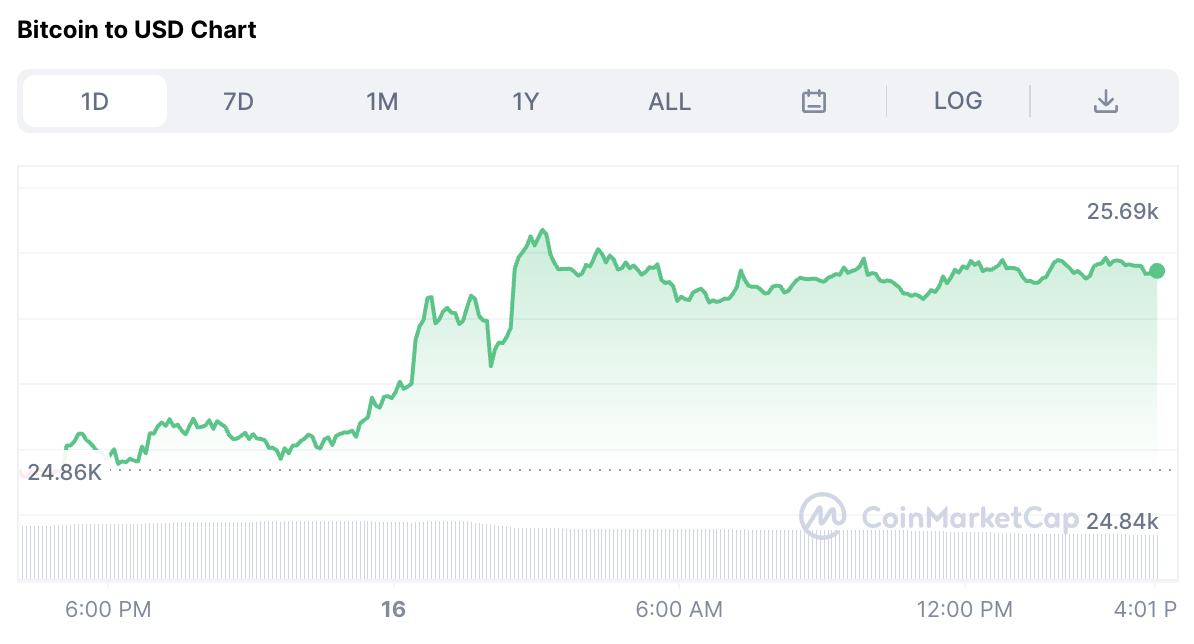Join Our Telegram channel to stay up to date on breaking news coverage
BlackRock has recently submitted an application for a Bitcoin ETF, collaborating with Coinbase. The SEC’s history of rejecting spot Bitcoin ETFs contrasts with futures-based approvals. Experts view BlackRock’s move as positive amid regulatory scrutiny, reflecting public interest in cryptocurrencies.
BlackRock Makes Major Move with Bitcoin ETF Application Amid Uncertain Regulatory Landscape
BlackRock, the largest asset manager globally, has submitted an application to the United States Securities and Exchange Commission (SEC) for a spot Bitcoin exchange-traded fund (ETF). The anticipated filing follows a report from CoinDesk earlier in the day, indicating a near approaching submission.
With $9.5 trillion in assets under management in Q1 2023, BlackRock has collaborated with Coinbase, the largest US cryptocurrency exchange, for the ETF. Coinbase Custody will serve as the custodian, while the exchange’s spot market data will be used for pricing. BNY Mellon will act as the cash custodian.
In August last year, BlackRock established a partnership with Coinbase to facilitate direct access to digital assets, starting with Bitcoin, for institutional investors using BlackRock’s investment management platform Aladdin.
The agreement granted BlackRock clients the ability to utilize Coinbase’s Prime, custody and reporting services.
Although the nature of the ETF, whether spot or futures-based, remains unclear, the SEC has consistently rejected spot Bitcoin ETF applications while approving several futures-based Bitcoin ETFs for trading.
The SEC’s approval of four Bitcoin ETFs for futures trading stands in contrast to the challenges faced in registering a Bitcoin ETF tied to spot market trading. The SEC has expressed apprehensions regarding the possibility of fraud or manipulation in the spot market, leading to a more cautious approach in that area.
ETFs are investment products designed to mirror the performance of various assets such as commodities, currencies, stocks, or bonds. They offer investors a way to gain exposure to these assets without the requirement of direct ownership.
In the case of a Bitcoin ETF, it allows investors to participate in the growth or decline of the largest cryptocurrency without having to physically possess the digital asset itself. Instead, investors can purchase shares of the ETF that reflect the price movements of Bitcoin.
The SEC’s hesitancy to grant approval for a spot market Bitcoin ETF has sparked considerable debate and frustration among applicants.
In 2022, the SEC’s rejection of Grayscale’s application for a spot market Bitcoin ETF resulted in a legal dispute between the two parties. More recently, a federal judge raised doubts about the SEC’s assertions regarding the adequacy of data presented by Grayscale.
Proposals for spot Bitcoin ETFs from companies such as Fidelity, CBOE Global Markets, and NYDIG have also faced rejection by the SEC.
BlackRock’s filing for a Bitcoin ETF is significant amidst increased regulatory scrutiny of the cryptocurrency industry. The SEC’s lawsuits against major exchanges Coinbase and Binance have had a substantial impact on the digital assets industry.
Experts in the industry see BlackRock’s application as a positive step towards regulatory approval, indicating the enduring public interest in cryptocurrencies.
Bitcoin Below $25,000 on Thursday Raises Concerns Amid Regulatory Challenges
Thursday morning witnessed a significant drop in cryptocurrency prices, triggered by the Federal Reserve’s announcement of a temporary suspension in interest rate hikes. Although the losses for the day have been mitigated on Friday, these developments raised concerns about the potential consequences on the economy.
Bitcoin, in particular, dipped below $25,000 for the first time since March. The price drop intensified, reaching around $24,800, marking a $1,000 decrease. Other cryptocurrencies, including Ethereum, Cardano’s ADA, and SOL, followed suit with significant declines. As per data on Friday, the token has managed to climb back above $25k level, trading at $25,600 at the time of writing.
Meanwhile, the crypto industry faced additional challenges with regulatory lawsuits against major currencies like Binance and Coinbase.
The Securities and Exchange Commission’s legal actions against these platforms have led to repercussions, such as Binance suspending U.S. dollar deposits and certain trading platforms delisting specific coins. Binance coin witnessed a further decline of 5% on Thursday, while Coinbase stock experienced a 3% drop.
This recent market turbulence reflects the similarities to the mid-March scenario when Bitcoin plummeted to $20,100 following an interest rate hike and the collapse of Silvergate Bank, a crypto-focused lender. Silicon Valley Bank’s acquisition by the Federal Deposit Insurance Corporation also contributed to the volatile situation during that time.
Related Articles
- How to Buy Bitcoin
- Grayscale Takes on SEC After Rejection of Bitcoin ETF
- Grayscale and Bitwise Withdraw from Ethereum Futures ETF Plans
Best Wallet - Diversify Your Crypto Portfolio
- Easy to Use, Feature-Driven Crypto Wallet
- Get Early Access to Upcoming Token ICOs
- Multi-Chain, Multi-Wallet, Non-Custodial
- Now On App Store, Google Play
- Stake To Earn Native Token $BEST
- 250,000+ Monthly Active Users
Join Our Telegram channel to stay up to date on breaking news coverage




